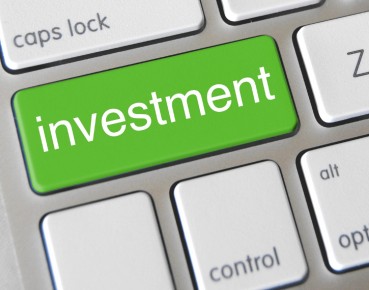Tydzień w gospodarce
Category: Raporty

(www.gotcredit.com, CC BY 2.0)
Since the end of February 2020, as the SARS-CoV-2 started to reach Europe, financial markets across the continent have suffered heavy losses. The MSCI Europe Index, which measures the return on stocks in 15 European countries, has lost around 20 per cent this year. The DAX Index, which tracks Germany’s 30 major companies, such as Daimler, Lufthansa, Bayer or Allianz, has lost around 10 per cent since the end of February.
Some companies, such as the German airliner Lufthansa, are relatively “lucky” in that they can rely on a financial rescue package from the government. However, most companies in Europe have no such pillar to lean on. Many of them are now in a dire need of financial liquidity, just to keep afloat for the next months. On the other hand, there are many investors around the world who are more than happy to “help”.
According to an article published by Bloomberg in early April, bankers have registered an upsurge in requests from Chinese firms and funds for proposals on targets in Europe. “Many of the potential acquirers are state-owned enterprises,” anonymous sources told Bloomberg. But any potential deals made by companies coming from China, especially the state-controlled ones, are going to encounter some serious backlashes from European governments.
In late March, the European Commission published guidelines on screening of foreign investments from non-EU states. The document urges the governments of EU member states to be more vigilant and scrutinize foreign investments in European strategic assets. Those guidelines didn’t come completely out of the blue. An EU framework for the screening of foreign direct investments had come into force already in April 2019.
The regulation stipulates that although the European Union continues to have an open investment environment, it will “adopt restrictive measures relating to foreign direct investment on the grounds of security or public order.” It lays grounds for creating a new screening mechanism for FDI coming from outside the EU. The new EU-level coordination mechanism, under the FDI Screening Regulation, will be effective from October 2020.
But even if the need to better protect European businesses from foreign takeovers has been recognized long before the pandemic, the current crises makes the matter all the more urgent.
Manfred Weber, the leader of the European People’s Party in the EU Parliament, said that the European Union should impose a 12-month stop block on investments coming from China. Similarly, the EU’s Commissioner for Competition Margrether Vestager said that Europe must be vigilant about Chinese takeovers. But even though the EU institutions are the most laud on the matter, at the end of the day, it is the competency of the individual member states to protect their companies as only the national governments retain sole responsibility for their national security.
Many countries in the European Union have already introduced more stringent measures to shield their companies from takeovers by non-EU entities. In early March this year, the Spanish government lowered the threshold for screening of foreign share acquisitions to 10 per cent. It also expanded the screening of FDI to other sectors, such as healthcare, technology and general critical infrastructure, according to the law firm White and Case.
More than a month later, the French government introduced the same measure, lowering the screening threshold for non-EU share acquisitions from 25 percent to 10 percent. It also expanded the screening to the biotechnology sector, according to Legi France.
The Italian government introduced a veto power giving it the right to block or limit certain types of foreign investments in individual companies in the following sectors: financial services, infrastructure and critical technology, energy, transport, water and health, food, robotics, cybersecurity, and others. Also, non-EU companies now have to notify the Italian government when acquiring a stake of 10 per cent or higher and above EUR1m in an Italian company.
In Germany, the government initiated a reform of the Foreign Trade and Payments Act. Under the new rules, a review of a potential deal can be undertaken if there is “likely harm” to the public system or security, a modification from the previous formulation of “actual danger.”
Although the European Commission itself is not naming any particular country, it is clear that acquisitions made by Chinese companies are seen as the biggest threat by Brussels and other European capitals. Many high-ranking EU politicians have warned against Chinese companies buying European businesses battered by the crisis.
However, at this juncture, it is important to state that Chinese FDI transaction in the EU-28 actually dropped by 33 per cent last year, from EUR18bn in 2018 to EUR12bin in 2019, according to a detailed analysis of Chinese investments in Europe by the Mercator Institute for China Studies.
The same goes for Chinese investments not just in Europe, but globally. According to the study, China’s global outbound investment peaked in 2016, after a decade of double-digit growth, and has been on a downward trajectory ever since. “Outflows dropped precipitously in 2017 and 2018, after Beijing imposed administrative restrictions to curb “irrational” capital outflows. In 2019, China’s global outbound FDI (OFDI) dropped back to 2014 levels,” the report reads.
“There were three main reasons for this decline [of Chinese FDI in Europe]: tighter administrative controls in China on outward investment from 2017; a clampdown on the “irrational” acquisitions of a few key investors; and a deleveraging campaign that reduced Chinese firms’ ability to finance overseas assets purchases,” the report says.
However, it remains to be seen how active have the Chinese investors been throughout the global pandemic when prices of many desired companies often lost more than 30 per cent in value. For that, similar statistics for 2020 will be more relevant.
Filip Brokeš is an analyst and a journalist specializing in international relations.


